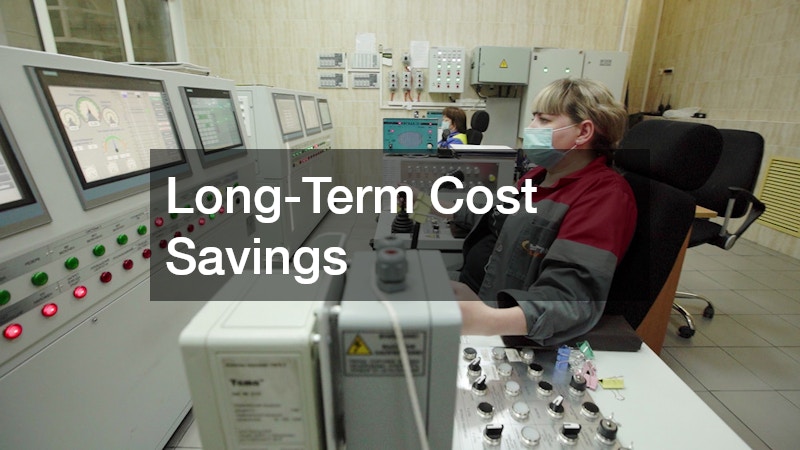
Facility management is a vital aspect of modern business operations that involves the effective coordination of the physical workplace with the people and work of an organization. As businesses strive for competitiveness and efficiency, the role of facility management becomes increasingly significant. By optimizing workplace environments and ensuring smooth operational flow, facility management contributes to the overall success and sustainability of a company.
How Facility Management Improves Efficiency and Productivity
Streamlining Operations
Effective facility management is key to reducing operational bottlenecks, thereby enhancing the flow of business processes. By overseeing the physical workspace and coordinating services, facility managers can identify and eliminate inefficiencies. This proactive approach to managing resources helps ensure that business operations run smoothly, leading to improved productivity.
Facility managers play a crucial role in ensuring that workspaces are organized, safe, and conducive to productive work. They coordinate maintenance schedules, manage space allocation, and ensure compliance with safety regulations. These efforts minimize disruptions, enabling employees to concentrate on their core responsibilities without unnecessary interruptions.
In addition to addressing immediate operational issues, facility management focuses on long-term improvements. By conducting regular assessments and implementing strategic initiatives, facility managers work to enhance the overall infrastructure and functionality of the workplace. This focus on continuous improvement positions businesses to adapt to changing needs and remain competitive.
Optimizing Resource Utilization
Facility management is instrumental in optimizing both physical and human resources within a business environment. Through careful planning and management, facility managers ensure that resources are allocated efficiently, reducing waste and maximizing utility. This optimization leads to cost savings and enhances the overall effectiveness of business operations.
Human resources are also optimized through effective facility management practices. By creating a comfortable and efficient workplace, facility managers contribute to employee satisfaction and productivity. Simple changes in space design and resource allocation can have significant impacts on employee morale and work output.
Moreover, technology plays a crucial role in optimizing resource utilization. Facility managers leverage technology to monitor usage patterns and adjust resource allocation accordingly. These insights enable businesses to make data-driven decisions that enhance both operational efficiency and the bottom line.
The Role of Technology in Facility Management
Integration of Smart Technologies
The integration of smart technologies in facility management is transforming how businesses operate. The adoption of IoT and smart building solutions allows facility managers to automate routine tasks and enhance monitoring capabilities. This technological advancement leads to significant improvements in efficiency and the ability to adapt quickly to changing business needs.
Smart technologies enable the collection of real-time data, which provides valuable insights into facility operations. This data-driven approach allows facility managers to proactively address issues and implement solutions before they become major problems. As a result, businesses can maintain optimum performance levels and reduce downtime.
Additionally, the use of automation and smart technologies reduces the reliance on manual processes, freeing up human resources for more strategic tasks. This shift not only increases productivity but also helps businesses save on labor costs. Embracing smart technologies positions businesses to be more agile and competitive in a rapidly evolving market.
Data-Driven Decision Making
Data analytics is a powerful tool in facility management that supports informed decision-making. Facility managers use data to evaluate performance metrics and assess the effectiveness of operations. This analytical approach enables businesses to identify trends, optimize processes, and implement targeted improvements.
Data-driven insights also guide strategic planning, helping businesses allocate resources more effectively and anticipate future needs. By leveraging data, facility managers can align their strategies with organizational goals and support long-term business success. This proactive management of facilities is essential in an increasingly competitive business landscape.
Moreover, data solutions provide the transparency needed for efficient resource management and cost control. By understanding usage patterns and operational demands, facility managers can implement cost-saving measures without compromising service quality. This balance of efficiency and cost management is a hallmark of effective facility management.
Why Sustainability is Crucial in Facility Management
Environmental Impact and Practices
Sustainability is a critical consideration in modern facility management that addresses the environmental impact of business operations. Facility managers implement eco-friendly practices to reduce carbon footprints and promote responsible resource consumption. These efforts align with broader societal goals of sustainability and corporate social responsibility.
Incorporating sustainable practices, such as energy-efficient systems and waste reduction initiatives, leads to significant environmental benefits. Facility managers coordinate the implementation of renewable energy sources and sustainable materials, further enhancing environmental stewardship. This focus on sustainability is increasingly important as businesses respond to regulatory pressures and growing consumer demand for eco-friendly practices.
Effective facility management balances environmental responsibility with operational efficiency. By integrating sustainability into business operations, facility managers contribute to a positive brand image and competitive advantage. This approach reflects a commitment to long-term environmental and business sustainability.
Long-Term Cost Savings
Sustainable facility management practices offer significant long-term cost savings for businesses. By reducing energy consumption and minimizing waste, facility managers help lower operational expenses. These savings can be reinvested into the business, fostering further innovation and growth.
In addition to financial savings, sustainability initiatives can attract and retain customers and employees who prioritize environmental responsibility. A commitment to sustainability enhances a business’s reputation and strengthens its market position. This alignment with consumer values is increasingly important in today’s marketplace.
Facility management plays a critical role in the success and sustainability of modern businesses. By focusing on efficiency, technology adoption, and sustainability, businesses can achieve significant operational improvements and cost savings. As companies navigate the complexities of a dynamic business environment, strategic facility management will continue to be an essential component of their success.






